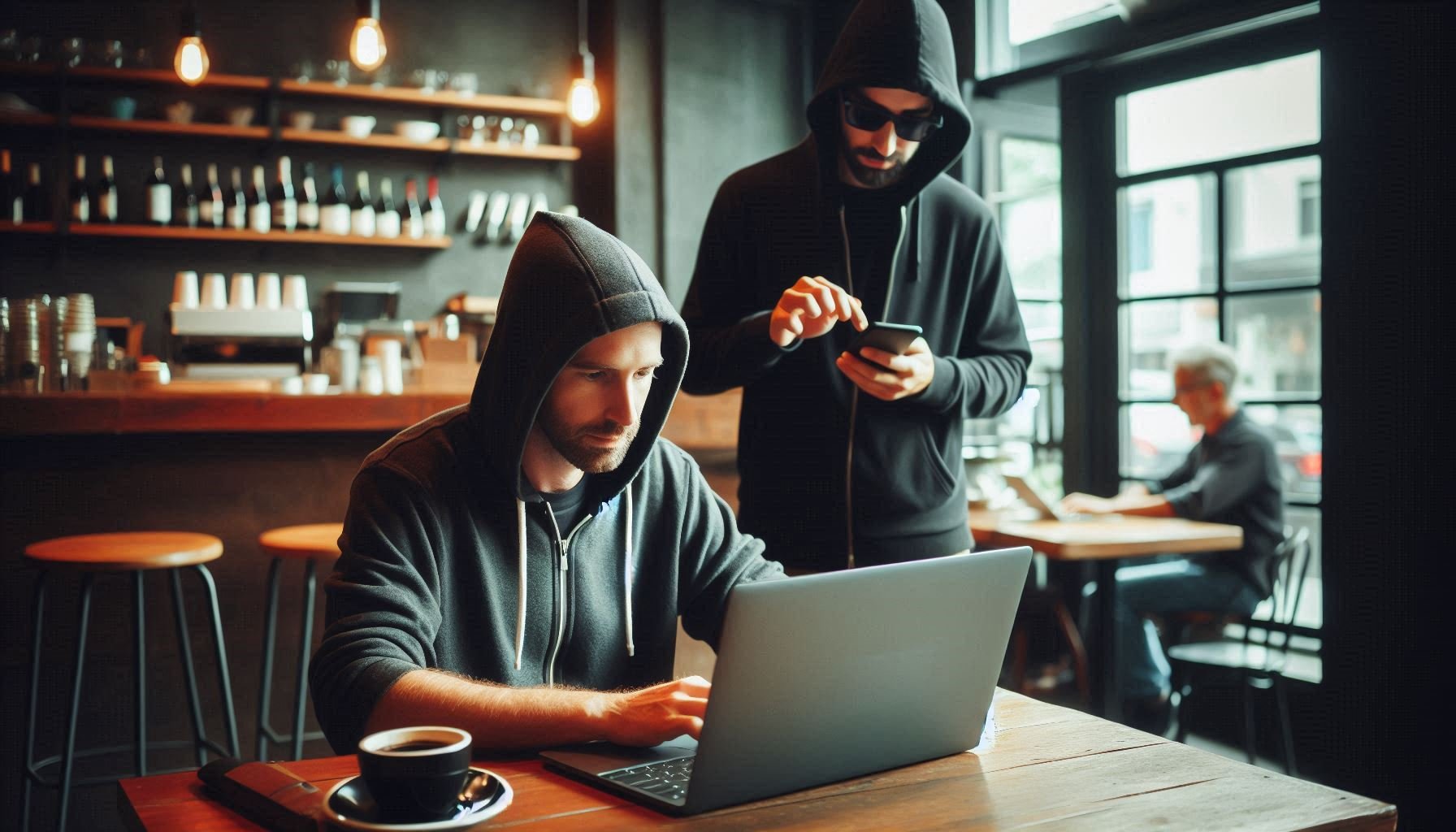Day 15: Think Before You Click
Public Wi-Fi Safety - Free Wi-Fi, But at What Cost?
"Ever connect to a free Wi-Fi network in a café, airport, or bus station and think, ‘Wow, what a great service!’? Well, hackers think the same thing—except they’re more excited about stealing your data than your free internet connection."
Welcome to Day 15 of #CybersecurityAwarenessMonth! Today, we’re discussing the dos and don'ts of public Wi-Fi. While free Wi-Fi might seem convenient, it’s often a playground for cybercriminals. The goal is to use public Wi-Fi without risking your personal information.
Why Public Wi-Fi Can Be Dangerous
Public Wi-Fi networks, such as coffee shops, airports, and hotels, are frequently unsecure. Unencrypted data transmitted over these networks can be readily intercepted by hackers, allowing them to track your online activities, steal confidential data, or even infect your device with malware. Imagine that when you're sipping your favorite latte at your favorite café, someone nearby is accessing your bank information as you browse Instagram!
Top Tips to Stay Safe on Public Wi-Fi
Avoid sensitive transactions on public Wi-Fi, such as logging into bank accounts or online purchases. Wait for secure, private connections for important tasks.
A VPN is an important tool for securing oneself on public Wi-Fi since it establishes a secure, encrypted connection that prevents hackers from spying on your activity.
Ensure websites use HTTPS, which encrypts data sent between your device and the website, providing extra protection even on unsecured networks.
To prevent accidental connections to insecure networks, turn off automatic connections on phones and laptops that automatically connect to open Wi-Fi networks.
- Disable file-sharing features on your device while on public Wi-Fi to prevent network access or malicious file distribution.
- Enable two-factor authentication (2FA) when logging into important accounts on public Wi-Fi to prevent hackers from gaining access despite having your password.
- Limit app permissions on public Wi-Fi and regularly review them to prevent unnecessary data sharing.
What If You Have No Other Option?
Sometimes, public Wi-Fi is the only option. If you must use it and don’t have access to a VPN, here are a few quick tips:
- Use your cellular data for sensitive tasks like banking or shopping.
- Log out of accounts after using them on public Wi-Fi.
- Forget the network after using it so your device doesn’t automatically reconnect.
What Hackers Look For
Hackers adore public Wi-Fi because creating "rogue" hotspots is simple. A rogue hotspot is a fictitious wireless network that appears authentic but is really intended to steal your personal information. These networks frequently go by names that seem recognized, such as "Free Coffee Wi-Fi," although they are unrelated to the real place.
Be cautious about the networks you connect to. Ask the staff if you're unsure what the correct network name is.
Public Wi-Fi is convenient, but convenience can come at a cost if you’re not careful. Following these tips, you can browse safely and enjoy your free internet connection without worrying about hackers peeking over your digital shoulder. Stay smart, stay safe, and enjoy that coffee—just don’t do your banking while at it!
#PublicWiFiSafety #CybersecurityAwareness #SecureOurWorld #SafeBrowsing #DataProtection
Stay aware, stay protected, and remember: when in doubt, disconnect!
|
![]](https://pbs.twimg.com/media/GaIDEnLWYAAzE4g?format=jpg&name=small)